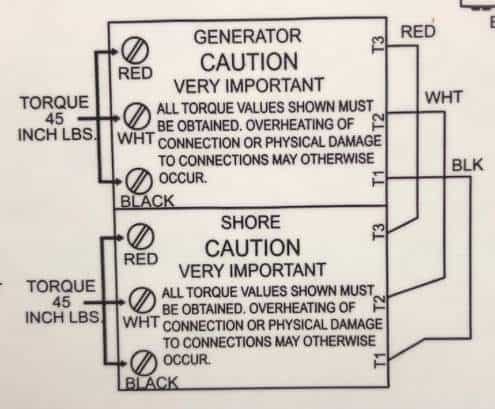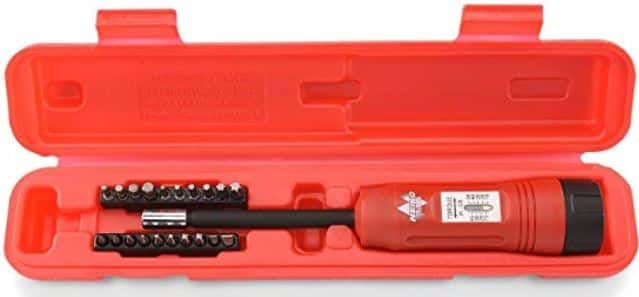The following just showed up on my Facebook Group, and it’s a good reminder to never ignore any burned electrical smells. Read and heed below.
Dear Mike,
I found this… I was noticing some heat and smell from the panel when running the A/C for long periods. This is a 30-amp setup and it’s been fine. I found the neutral terminal screw for the main feed was pretty loose. Would that cause the heat buildup or should I be looking at something else? I’m pretty certain it was just from a loose contact. Cut and re-stripped the wire and will run things again to see if it gets warm. I’m just happy that I noticed. Any thoughts would be appreciated! Thanks. —Scott
Dear Scott,
Your quick action saved the power panel from additional damage, and possibly prevented a fire in your RV if it had been left unchecked. So, great job on realizing that hot electrical smells in your RV usually mean trouble. It’s always best to check.
I cover this sort of thing in a lot more depth in my RV technician seminars, but the basics are that any loose electrical connection will tend to heat up and can cause damage to the wiring. That’s why I suggest that all electrical screws in your power panel should be checked for proper tightness at least once a season. While it’s true that you normally don’t have to do this sort of thing in your sticks-and-bricks house, it’s not bouncing down the highway possibly thousands of miles a year and going through temperature swings from below 0 to above 100 degrees like the electrical system in your RV. All that vibration and the hot/cold temperature swings tend to loosen up your electrical connectors.
Careful With That (Axe) Wrench , Eugene
However, as I’ve written before, you just don’t want to get cranking and possibly over-torque the terminating screws – which can cause more problems if you strip them, and possibly break off a relay terminal in your Automatic Transfer Switch (ATS). That’s expensive and can leave you without power until you get a replacement unit, so don’t go there.
Torque It To The Limit…
And make sure you have and use the correct type of bit (usually square) in the screwdriver (not just a flat blade) since you don’t want to damage the terminating screws by slipping off of them. Some of the damage I see by casual “non-electricians” is pretty sad and unnecessary if only they had used the right tools in the first place.
I also highly recommend you use a torque limiting screwdriver set to the correct torque, which is usually around 35 in/lbs (not ft/lbs), and often marked right inside the cover of your ATS. I have an industrial duty torque screwdriver for my own work, but that’s probably overkill for the average user. So, as I’ve noted here before, you can get a nice one made for gunsmiths for less than $60 which should do the trick. You can get one on Amazon HERE.
Leggo My Wago
Also, if any of the wires were damaged from overheating like the one in the picture, you need to cut them back to get to the unburned insulation and fresh copper. If it’s then too short to make the connection, I recommend you use WAGO lever splice connectors inside of the box to add on a length of the proper gauge and color wire. WAGO lever 10-gauge splice connectors are available on Amazon.com and other electrical parts houses, and are really handy for this sort of splice. But don’t buy the cheap knock-offs since they tend to be substandard construction.
Finally, make sure ALL power is off before you even open up a panel as those are deadly voltages inside, and you’ll be reaching in with a metal screwdriver. So, disconnect from shore power, generator power and inverter power. Any of the above can kill you.
That’s All Folks…
OK, everyone. Remember that electricity is a useful and powerful force, so we all need to pay attention to safety precautions while using it.
Mike Sokol is an electrical and professional sound expert with 50+ years experience in in all aspects of electrical power safety, control and distribution . His book RV Electrical Safety is available on Amazon.










Nice write-up. Thanks for the Ummagumma reference - good memories!
I finally broke down and bought an ECX screwdriver for my electrical tool bag. That blade really works great on receptacles and switches. The design keeps the blade centered and steady much better than a regular screwdriver and it tightens better than the square drivers.